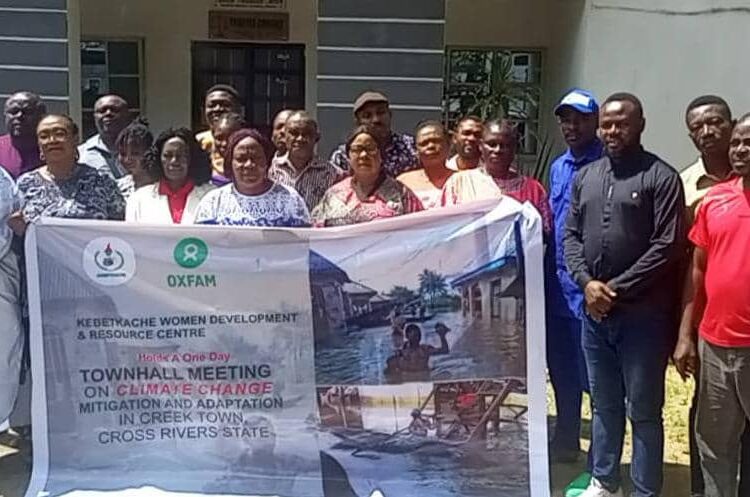A non-governmental organisation working to promote women’s rights and environmental justice in Nigeria and beyond, Kebetkache Women Development and Resource Centre, has warned fishermen in the coastal communities of Bakassi Peninsula to desist from using premium motor spirit (petrol) for preservation of crayfish and crabs in order not to compromise the health consumers.
Executive director of the organisation, Dr. Mrs. Emem Okon, gave the warning during a one-day training workshop on ‘Climate Change, Mitigation and Adaptation Strategies’, which took place on Friday in Calabar, Cross River State.
The training, funded by Oxfam, was to assist in the fight against impact of climate change, mitigation processes and adaptation strategies, and it brought participants from the nooks and crannies of riverine communities of Cross River South to brainstorm on the issues.
Okon stressed that should the fishermen fail to heed the warning, the health of most crayfish consumers is likely to be in jeopardy.
She noted that the use of petroleum product for crayfish preservation in the creeks in recent times has become an issue for concern, given the danger associated with the act.
Meanwhile, speaking with LEADERSHIP on the mitigation of climate change shortly after the training of 30 participants, a conservationist and Chief Executive Officer (CEO) of Sentient Farms Venture Calabar, Lawrence Peters, advocated the use of bricket (Palm kennel shells) to smoke crayfish and cook thier meals rather than use wood from mangoove forest.
He said that cutting down the mangroves forest for firewood can expose humanity to natural disaster that might be difficult to contend with.
“I feel it is out of place for people to go out there and indiscriminately destroy our mangroves by means of deforestation.
“I understand that we have livelihood challenge and we might want to use the mangroves because it burns like wild fire.
“That’s not withstanding, we should think otherwise ways to adopt strategies like the use of bricket that burns very well but with no negative impact as cutting down the mangroves.
“If we don’t restrain ourselves from cutting down the mangroves, a time will come that we may no longer find any of the species of periwinkle and crabs that hides at the roots of mangroves that we might be in dire need of,” Peters stated.





